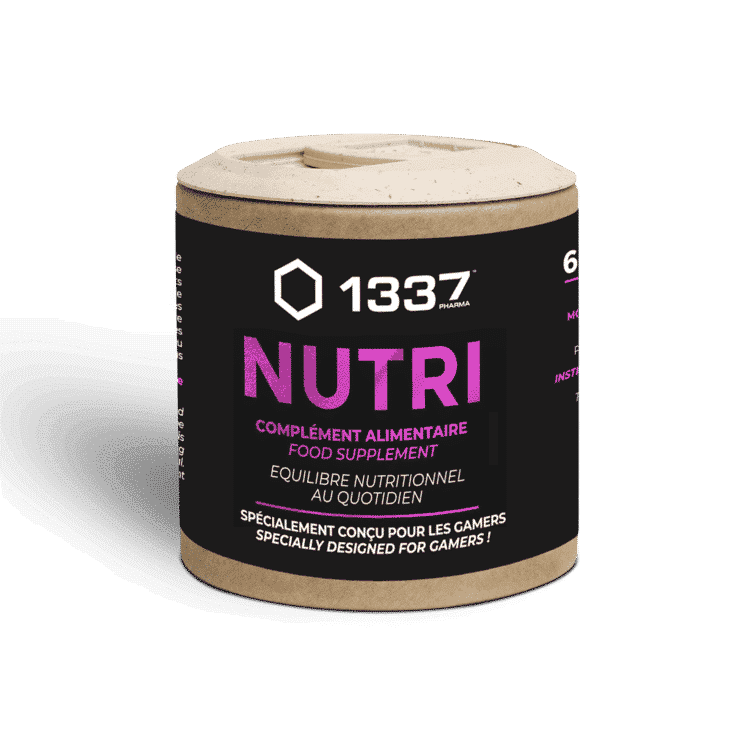VITAMIN B12
Ingredient
What is Vitamin B12?
Where does it come from?
Why is it used?
What are the benefits?
Bibliography
What is Vitamin B12?
Vitamin B12 plays many roles in your body. It contributes to the normal functioning of your nerve cells and is necessary for DNA synthesis and the formation of red blood cells.
For most adults, the recommended daily allowance (RDA) is 2.4 mcg, although it is higher for pregnant or breastfeeding women.
Where does it come from?
It is found naturally in animal products, but is also added to some foods and available as an oral supplement or injection.
Why is it used?
Vitamin B12 can benefit your body in impressive ways, including boosting your energy, improving your memory, and helping to prevent heart disease.
• Helps in the formation of red blood cells and the prevention of anemia
Vitamin B12 participates in the formation of red blood cells. When vitamin B12 levels are too low, red blood cell production is impaired, causing megaloblastic anemia. (Shipton & Thachil, 2015)
• May prevent major birth defects
Appropriate levels of vitamin B12 are essential for a healthy pregnancy. They are important for the prevention of birth defects of the brain and spinal cord. (Molloy et al., 2008, 2009)
• May promote bone health and prevent osteoporosis
Vitamin B12 can play a vital role in the health of your bones. Low blood levels of this vitamin have been associated with an increased risk of osteoporosis. (Bozkurt et al., 2009; Dhonukshe-Rutten et al., 2003; Stone et al., 2004; Tucker et al., 2005)
• May reduce the risk of macular degeneration
Maintaining adequate levels of vitamin B12 decreases homocysteine levels in your blood.
This may help prevent the development of age-related macular degeneration. (Christen et al., 2009; Huang et al., 2015; Seddon et al., 2006)
• May improve mood and symptoms of depression
Vitamin B12 is necessary for the production of serotonin, a chemical responsible for regulating mood. Vitamin B12 supplements may help improve the mood of people with an existing deficiency. (Hintikka et al., 2003; Penninx et al., 2000; Syed et al., 2013)
• May benefit your brain by preventing neuron loss
Vitamin B12 can help prevent brain atrophy and memory loss. Further research is needed to conclude whether taking supplements of this vitamin can improve memory in people without a deficiency. (Köbe et al., 2016; Oulhaj et al., nd)
• Can give you an energy boost
Vitamin B12 is involved in the production of energy in your body. Taking a supplement can improve your energy levels, but only if you are deficient in this vitamin. (Huijts et al., 2012; Lukaski, 2004; O’Leary & Samman, 2010)
• May improve heart health by reducing homocysteine
Vitamin B12 may decrease blood homocysteine, a type of amino acid that is associated with an increased risk of heart disease. However, research currently does not support the claim that vitamin B12 reduces this risk. (Keene et al., 2014; Leishear et al., 2012; Markišić et al., 2017)

What are the benefits?
Discover other plants used in our products
Bibliography
1. Bozkurt, N., Erdem, M., Yilmaz, E., Erdem, A., Biri, A., Kubatova, A., & Bozkurt, M. (2009). The relationship of homocyteine, B12 and folic acid with the bone mineral density of the femur and lumbar spine in Turkish postmenopausal women. Archives of Gynecology and Obstetrics, 280(3), 381-387. https://doi.org/10.1007/s00404-009-0936-0
2. Christen, WG, Glynn, RJ, Chew, EY, Albert, CM, & Manson, JE (2009). Folic Acid, Vitamin B6, and Vitamin B12 in Combination and Age-related Macular Degeneration in a Randomized Trial of Women. Archives of internal medicine, 169(4), 335-341. https://doi.org/10.1001/archinternmed.2008.574
3. Dhonukshe-Rutten, RAM, Lips, M., de Jong, N., Chin A Paw, MJM, Hiddink, GJ, van Dusseldorp, M., De Groot, LCPGM, & van Staveren, WA (2003). Vitamin B-12 status is associated with bone mineral content and bone mineral density in frail elderly women but not in men . The Journal of Nutrition, 133(3), 801-807. https://doi.org/10.1093/jn/133.3.801
4. Hintikka, J., Tolmunen, T., Tanskanen, A., & Viinamäki, H. (2003). High vitamin B12 level and good treatment outcome may be associated in major depressive disorder . BMC Psychiatry, 3, 17. https://doi.org/10.1186/1471-244X-3-17
5. Huang, P., Wang, F., Kumar Sah, B., Jiang, J., Ni, Z., Wang, J., & Sun, X. (2015). Homocysteine and the risk of age-related macular degeneration: A systematic review and meta-analysis. Scientific Reports, 5, 10585. https://doi.org/10.1038/srep10585
6. Huijts, M., Duits, A., Staals, J., & van Oostenbrugge, RJ (2012). Association of vitamin B12 deficiency with fatigue and depression after lacunar stroke. PloS One, 7(1), e30519. https://doi.org/10.1371/journal.pone.0030519
7. Keene, KL, Chen, W.-M., Chen, F., Williams, SR, Elkhatib, SD, Hsu, F.-C., Mychaleckyj, JC, Doheny, KF, Pugh, EW, Ling, H ., Laurie, CC, Gogarten, SM, Madden, EB, Worrall, BB, & Sale, MM (2014). Genetic Associations with Plasma B12, B6, and Folate Levels in an Ischemic Stroke Population from the Vitamin Intervention for Stroke Prevention (VISP) Trial. Frontiers in Public Health, 2, 112. https://doi.org/10.3389/fpubh.2014.00112
8. Köbe, T., Witte, AV, Schnelle, A., Grittner, U., Tesky, VA, Pantel, J., Schuchardt, JP, Hahn, A., Bohlken, J., Rujescu, D., & Floel, A. (2016). Vitamin B-12 concentration, memory performance, and hippocampal structure in patients with mild cognitive impairment. The American Journal of Clinical Nutrition, 103(4), 1045‐1054. https://doi.org/10.3945/ajcn.115.116970
9. Leishear, K., Ferrucci, L., Lauretani, F., Boudreau, RM, Studenski, SA, Rosano, C., Abbate, R., Gori, AM, Corsi, AM, Di Iorio, A., Guralnik , JM, Bandinelli, S., Newman, AB, & Strotmeyer, ES (2012). Vitamin B12 and Homocysteine Levels and 6-Year Change in Peripheral Nerve Function and Neurological Signs. The Journals of Gerontology Series A: Biological Sciences and Medical Sciences, 67A(5), 537-543. https://doi.org/10.1093/gerona/glr202
10. Lukaski, HC (2004). Vitamin and mineral status: Effects on physical performance. Nutrition (Burbank, Los Angeles County, Calif.), 20(7-8), 632-644. https://doi.org/10.1016/j.nut.2004.04.001
11. Markišić, M., Pavlović, AM, & Pavlović, DM (2017). The Impact of Homocysteine, Vitamin B12, and Vitamin D Levels on Functional Outcome after First-Ever Ischaemic Stroke. BioMed Research International, 2017, 5489057. https://doi.org/10.1155/2017/5489057
12. Molloy, AM, Kirke, PN, Brody, LC, Scott, JM, & Mills, JL (2008). Effects of folate and vitamin B12 deficiencies during pregnancy on fetal, infant, and child development. Food and Nutrition Bulletin, 29(2 Suppl), S101-111; discussion S112-115. https://doi.org/10.1177/15648265080292S114
13. Molloy, AM, Kirke, PN, Troendle, JF, Burke, H., Sutton, M., Brody, LC, Scott, JM, & Mills, JL (2009). Maternal Vitamin B12 Status and Risk of Neural Tube Defects in a Population With High Neural Tube Defect Prevalence and No Folic Acid Fortification . Pediatrics, 123(3), 917-923. https://doi.org/10.1542/peds.2008-1173
14. O’Leary, F., & Samman, S. (2010). Vitamin B12 in Health and Disease. Nutrients, 2(3), 299-316. https://doi.org/10.3390/nu2030299
15. Oulhaj, A., Jernerén, F., Refsum, H., Smith, AD, & de Jager, CA (nd). Omega-3 Fatty Acid Status Enhances the Prevention of Cognitive Decline by B Vitamins in Mild Cognitive Impairment. Journal of Alzheimer’s Disease, 50(2), 547-557. https://doi.org/10.3233/JAD-150777
16. Penninx, BW, Guralnik, JM, Ferrucci, L., Fried, LP, Allen, RH, & Stabler, SP (2000). Vitamin B(12) deficiency and depression in physically disabled older women: Epidemiologic evidence from the Women’s Health and Aging Study. The American Journal of Psychiatry, 157(5), 715-721. https://doi.org/10.1176/appi.ajp.157.5.715
17. Seddon, JM, Gensler, G., Klein, ML, & Milton, RC (2006). Evaluation of plasma homocysteine and risk of age-related macular degeneration. American Journal of Ophthalmology, 141(1), 201-203. https://doi.org/10.1016/j.ajo.2005.07.059
18. Shipton, MJ, & Thachil, J. (2015). Vitamin B12 deficiency—A 21st century perspective. Clinical Medicine (London, England), 15(2), 145‐150. https://doi.org/10.7861/clinmedicine.15-2-145
19. Stone, KL, Bauer, DC, Sellmeyer, D., & Cummings, SR (2004). Low serum vitamin B-12 levels are associated with increased hip bone loss in older women: A prospective study. The Journal of Clinical Endocrinology and Metabolism, 89(3), 1217-1221. https://doi.org/10.1210/jc.2003-030074
20. Syed, EU, Wasay, M., & Awan, S. (2013). Vitamin B12 Supplementation in Treating Major Depressive Disorder: A Randomized Controlled Trial. The Open Neurology Journal, 7, 44-48. https://doi.org/10.2174/1874205X01307010044
21. Tucker, KL, Hannan, MT, Qiao, N., Jacques, PF, Selhub, J., Cupples, LA, & Kiel, DP (2005). Low plasma vitamin B12 is associated with lower BMD: The Framingham Osteoporosis Study. Journal of Bone and Mineral Research: The Official Journal of the American Society for Bone and Mineral Research, 20(1), 152-158. https://doi.org/10.1359/JBMR.041018

